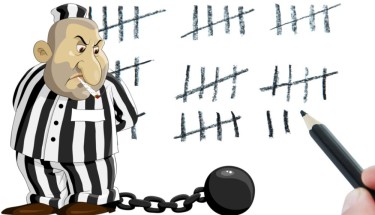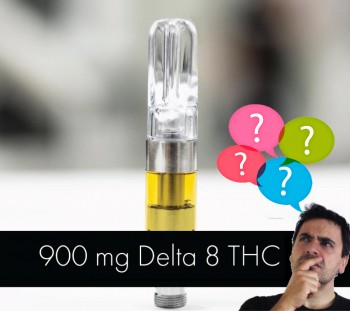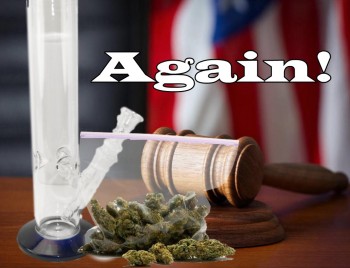As cannabis becomes increasingly legalized and mainstream, many people with past cannabis-related convictions are looking for ways to clear their records. Fortunately, many governments have begun to promise pardons for those with cannabis-related convictions. But how can you apply for one of these pardons?
Applying for a cannabis pardon can be daunting, but it is essential to a brighter future. Due to their criminal record, many people with cannabis-related convictions may face barriers to employment, housing, and other opportunities. A pardon can help remove these barriers and provide a second chance for those who have paid their debt to society.
Applying For Cannabis Pardon In Canada
Applying for a cannabis pardon in Canada can be a relatively straightforward process, thanks to the introduction of Bill C-93. The bill eliminated the waiting period and fee associated with applying for a pardon and the fingerprinting and photo requirements. However, it is essential to note that the legislation applies only to convictions for simple possession of cannabis and not to other cannabis-related offences such as trafficking or production.
To apply for a cannabis pardon in Canada, you must gather all the necessary documentation, including a copy of your criminal record and any court documents related to your cannabis conviction. You will also need to fill out an application form and submit it to the Parole Board of Canada (PBC).
One of the essential requirements for applying for a pardon is demonstrating rehabilitation. This means showing that you have made positive changes since your conviction and that you are unlikely to re-offend. This includes education, community involvement, job training, and counselling or therapy.
Gathering evidence of rehabilitation can be time-consuming, but it is an integral part of the application process. Some examples of evidence that can be used to demonstrate rehabilitation include letters of recommendation from employers or community leaders, certificates of completion for educational or job training programs, and documentation of therapy or counselling sessions.
Once you have all your documentation in order, you'll need to research the specific requirements and application process for the jurisdiction in which you were convicted. Each government has its process and requirements for pardons, so it's essential to ensure you understand your area's specific process.
The PBC will review your application and determine whether to grant a pardon. The review process can take several months, and you may be required to attend an interview or hearing.
It's important to note that the process of applying for a pardon can vary depending on the jurisdiction. Some governments may have automatic pardons for certain cannabis convictions, while others may require an application process. So, it's essential to research the specific requirements and procedures for your jurisdiction.
If your application is denied, you may have the option to appeal the decision. This can be a complex process, and it is vital to seek the help of an experienced attorney if you choose to appeal.
The process of applying for a cannabis pardon in Canada has been streamlined by the introduction of Bill C-93, which eliminates the waiting period and associated fees. However, it applies only to convictions for simple possession of cannabis and not to other cannabis-related offences such as trafficking or production. It's essential to research the specific requirements and processes for your jurisdiction.
What's The Bill C-93?
Bill C-93 is a Canadian law introduced in the House of Commons in March 2019, and it aims to provide no-cost, expedited pardons for simple possession of cannabis convictions. The Federal Government introduced the bill to address the negative impact of cannabis-related criminal records on people's lives, particularly for marginalized communities.
Bill C-93 eliminates the waiting period and fee associated with applying for a pardon and the fingerprinting and photo requirements. However, it is essential to note that the bill applies only to convictions for simple possession of cannabis and not to other cannabis-related offences such as trafficking or production.
The bill passed both the House of Commons and the Senate and received Royal Assent on June 21, 2019. The law came into force on record suspension on October 17, 2018, and on Pardons on March 11, 2019. It's important to note that a pardon does not erase a criminal record but sets it aside and limits who can see it. So, it will not appear on a criminal background check, but law enforcement agencies and some employers in specific industries can still access it.
Approval For Cannabis Pardon
Once you have completed the application form, it must be submitted to the appropriate government agency. Depending on your jurisdiction, this could be a department of justice, a parole board, or another government agency.
Once your application has been received, it will be reviewed by the appropriate authorities. This review process can take some time, and you may be required to attend an interview or hearing.
If your application is approved, you will be granted a pardon for your cannabis conviction. Your criminal record will be cleared, and you will no longer have to disclose your conviction on job applications or other forms. It's important to note that a pardon does not erase your criminal record. It just removes the sentence from it.
The application process for a cannabis pardon can take several months or even years. It is essential to be patient and stay informed about your application's status. Some jurisdictions may require you to attend an interview or hearing as part of the process, so it's essential to be prepared and to present yourself in the best possible light.
Conclusion
Applying for a cannabis pardon can be a complex process, but it is worth it for the benefits it can bring. By gathering all the necessary documentation, researching the requirements and application process for your jurisdiction, filling out the application form, and submitting it to the appropriate government agency, you can take the first steps towards clearing your record. While the process may take some time, the result is well worth the effort.
GETTING A CANNABIS PARDON IN THE US, READ ON...
WHO QUALIFIES UNDER JOE BIDEN'S MARIJUANA CLEMENCY PLAN?







